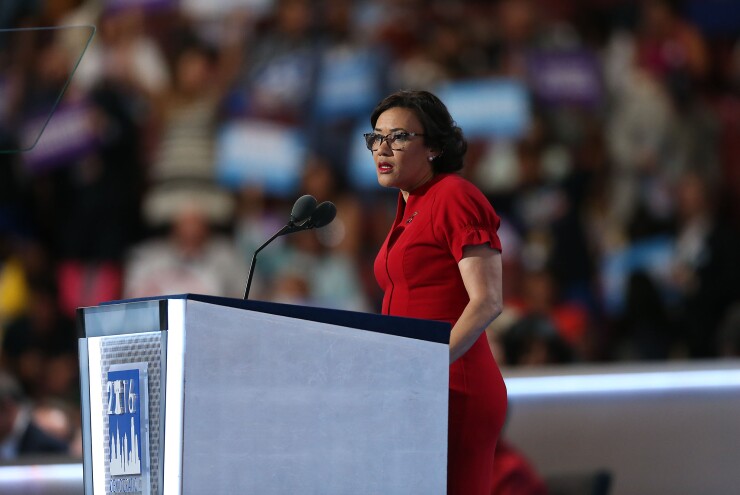Michigan is relinquishing daily control over Flint’s finances, state Treasurer Nick Khouri said.
Khouri announced Monday that effective immediately the state will hand the mayor and city council control of the city's daily finances and governmental decisions.
The move diminishes state oversight through the Flint Receivership Transition Advisory Board. The state will still review proposed and amended budgets, requests to issue debt and proposed collective bargaining agreements.

“Today is an important day for our shared goal of moving Flint forward,” Khouri said in a statement. “Thanks to the progress city leaders have made, this is an appropriate time for the mayor and city council to assume greater responsibility for day-to-day operations and finances.”
“This is an exciting development for the city of Flint,” Mayor Karen Weaver said in a statement. “We have been waiting for this for years.” Weaver said the decision brings Flint a step closer to its ultimate goal of home rule.
The state treasurer officially approved the recommendation submitted by the RTAB on Jan. 11 to rescind Emergency Order 20, which required resolutions approved by both the mayor and city council to receive the state board's approval before going into effect.
Weaver had previously said that the RTAB’s recommendation to restore authority to Flint officials for day-to-day operations felt like a "welcome end to an arranged marriage."
Weaver said she has hopes for the city and state to "officially divorce" and part governing ways by the end of the year. She said the appointment of Hughey Newsome in November 2017 as the city's interim chief financial officer, combined with the city's new council members and approval of a 30-year contract with the Great Lakes Water Authority, has helped to move Flint in a financially-solvent direction.
The GLWA contract saves the city about $9 million by locking in a more favorable rate with GLWA and addresses $7 million in debt service payments the city is currently obligated to pay on bonds issued to finance the Karegnondi Water Authority pipeline under construction.
After Flint's water contract with Detroit ended, the city's emergency manager shifted to Flint River water as the city awaited completion of the new KWA pipeline. Flint did not treat the water properly, leading to the contamination crisis that drew national attention and was the subject of congressional hearings and criminal charges.
Flint has been under state oversight for seven years now. In November 2011, a Financial Review Team concluded a financial emergency existed in the city and there was no satisfactory plan in place to address the city’s fiscal problems.
An emergency manager was present from November 2011 to April 2015, when the financial emergency was resolved and the Flint RTAB was appointed to oversee the city’s transition back to local control.





